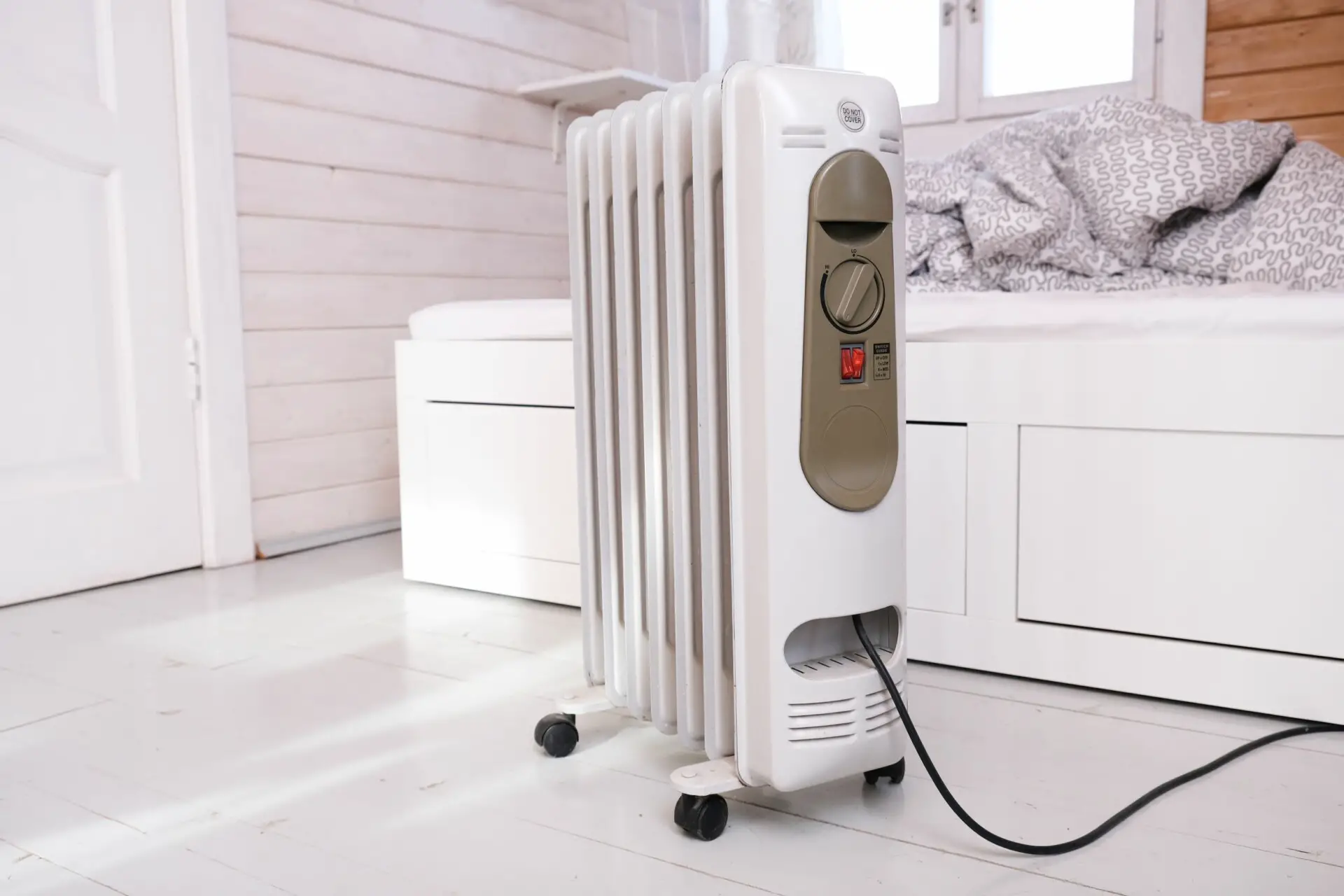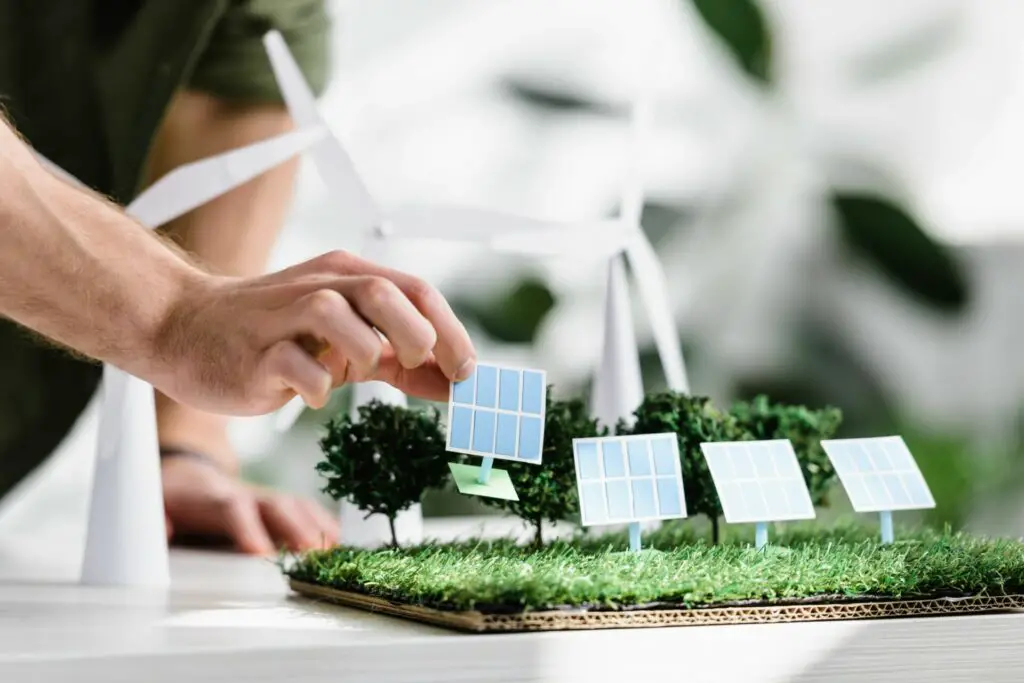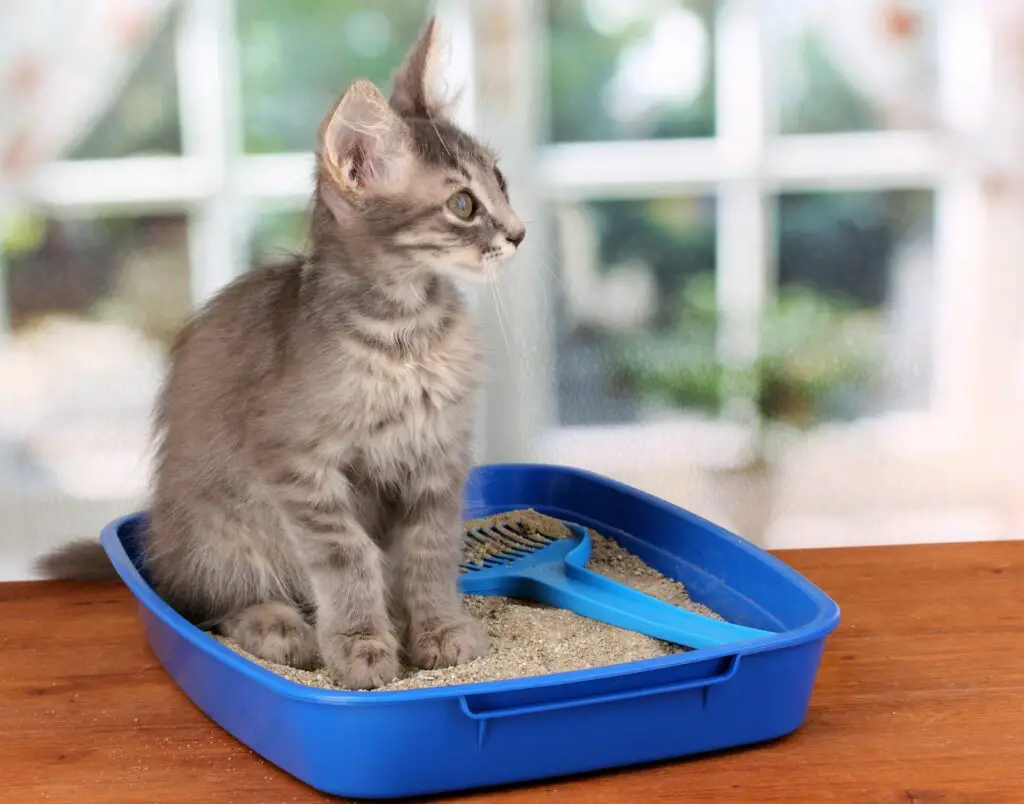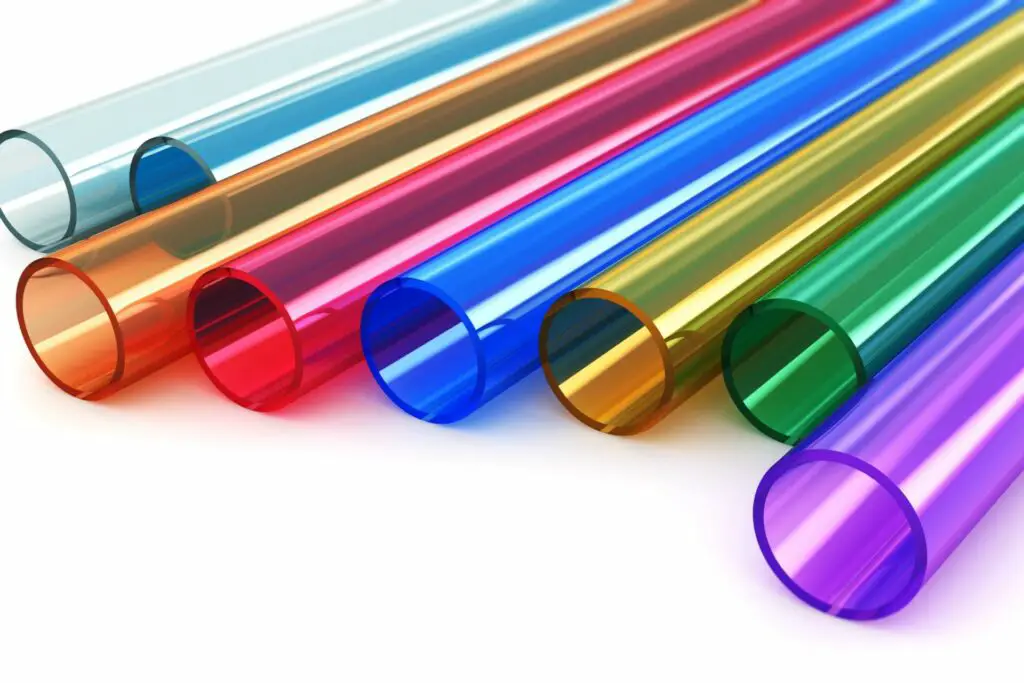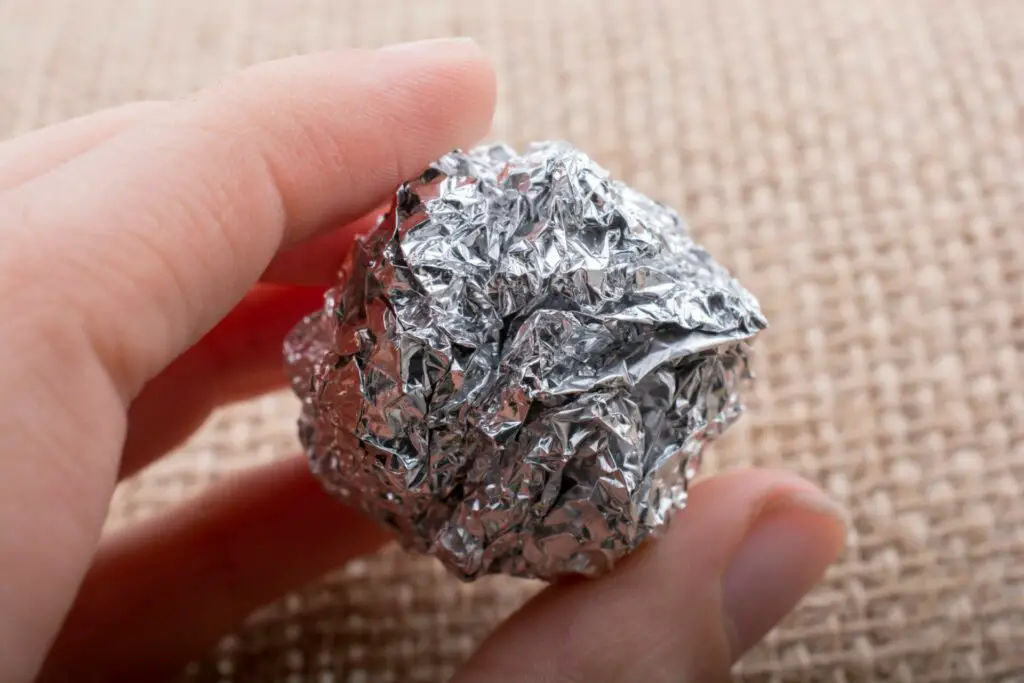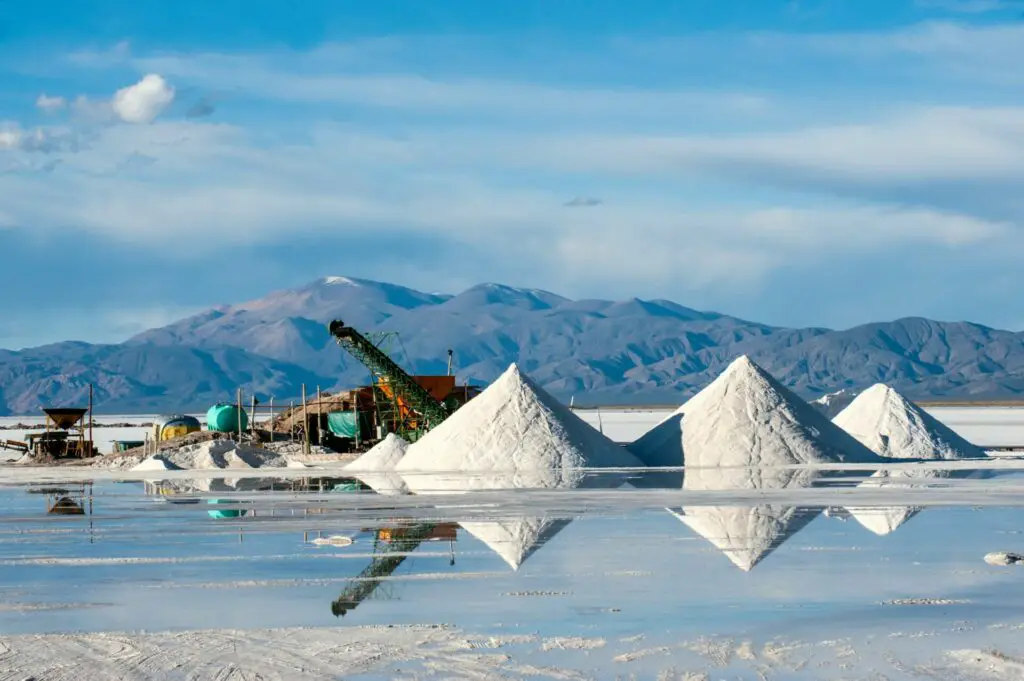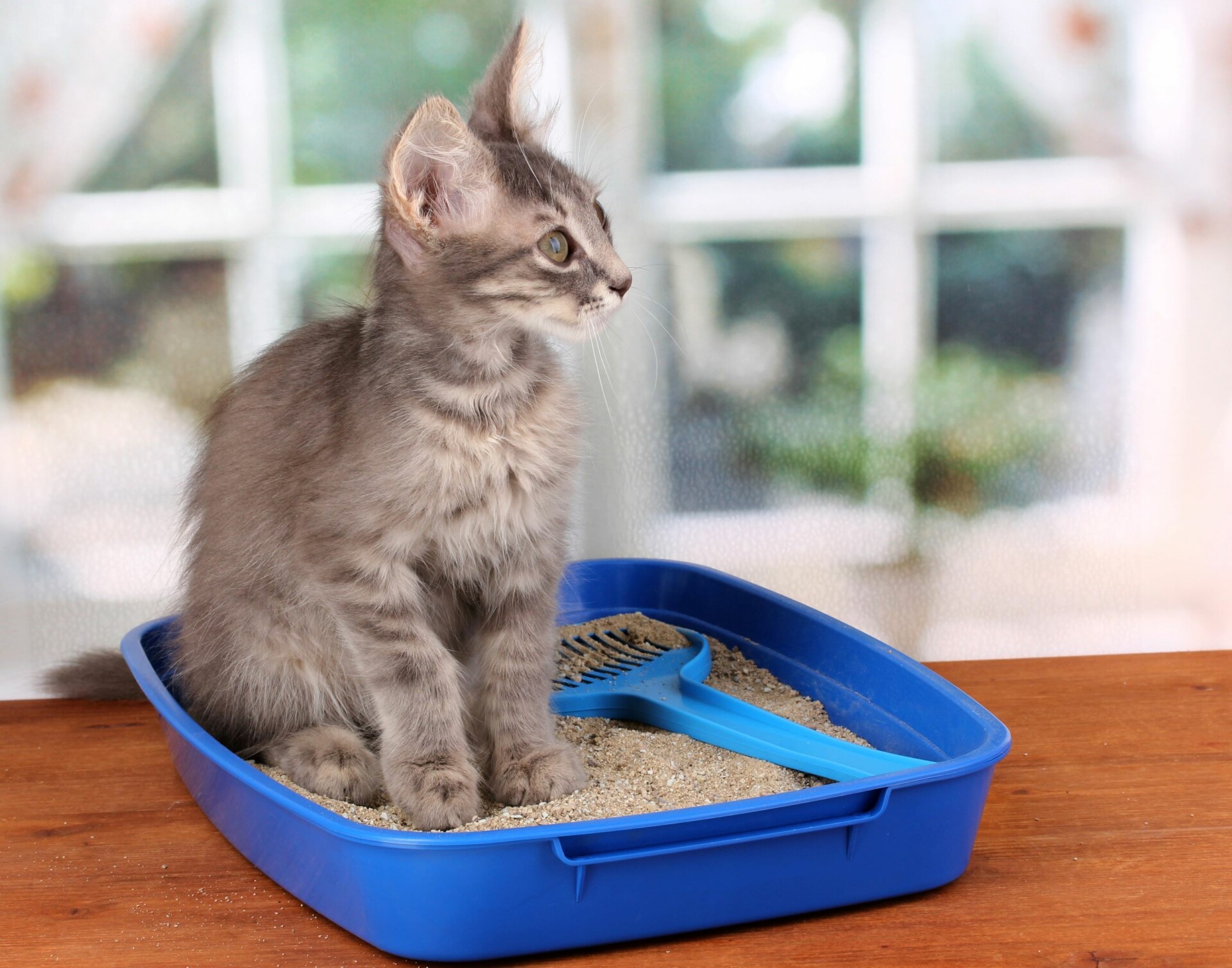Although we’ve all been told to close the windows and wear layers to avoid turning on the heating in the name of sustainability, sometimes it’s not warm enough.
So, you might want to choose a sustainable heater to stay warm instead.
Oil-filled radiators are not the least eco-friendly heater since they don’t give off emissions, have a long life span, and are energy-efficient.
But, the energy in your home is a huge factor in how sustainable they are.
Here’s what you need to know about how eco-friendly oil-filled radiators are.
1. Are Oil-Filled Radiators Environmentally Friendly?
Oil-filled radiators are not terrible for the environment.
They’re energy efficient as all the electricity required is used to heat the oil, which makes the radiator warm.
There can be energy wastage with other kinds of heaters, as they heat the air – but this means some warmth is lost.
Although they’re slow to heat up, they stay warm for a long time once you’ve turned the power off.
Their lifespan can vary depending on the brand, level of use, and care. However, they can last up to 20 years but seem to average around 10 to 15 years.
So, you will not need to replace your oil-filled radiator often, saving energy and resources.
2. When Are Oil-Filled Radiators Used?
People use oil-filled radiators to heat individual rooms in their homes.
Oil-filled radiators are quite small and portable, so they are not the same as central heating, which warms the whole home at once.
3. Do Oil-Filled Heaters Produce Greenhouse Gasses?
The oil inside an oil-filled radiator is thermal oil. The oil does not actually leave the radiator.
So, the bigger concern isn’t the oil itself but the electricity in your home used to power the radiator.
Non-renewable energy sources like gas or coal have high carbon footprints as they are sourced from mining and are then burned to produce energy. They will also run out eventually.
Although renewable energy is not always carbon neutral, it is greener overall.
For example, while renewable energy sources such as wind and solar power do not release emissions once they start generating electricity, setting up wind turbines and solar panels still requires energy and resources.
Biofuels, while renewable, also still entails burning plants for energy.
4. Are Oil-Filled Radiators Electric?
Yes, oil-filled radiators are electric.
The actual energy source comes from electricity, which heats the oil and then warms the radiator.
So, while they contain oil, the oil is not used as an energy source and is never burned.
5. Are Oil-Filled Heaters Sustainable?
Oil-filled heats are not inherently unsustainable. They’re energy-efficient and are ideal for heating small spaces.
They also have a long lifespan if maintained and cared for properly.
Having to regularly replace a heater uses up energy and resources, which you won’t have to do with oil-filled radiators.
As mentioned earlier, the biggest environmental concern is the electricity used to heat them in the first place, as non-renewable electricity is not sustainable.
6. Are Oil-Filled Radiators or Central Heating More Eco-Friendly?
Central heating can be from gas or electricity. This form of heating relies on heating water or air and circulating the heat through the home through pipes, vents, or radiators.
Oil-filled radiators, on the other hand, are individual heaters that can heat one space at a time.
Gas central heating and electricity generated from fossil fuels are not sustainable.
Natural gas is sourced from mining. The mining industry accounts for around 8% of carbon emissions globally.
Natural gas is also associated with methane emissions, which is a greenhouse gas.
Plus, sourcing natural gas can pollute surrounding water supplies due to hydraulic fracking, and the industry has a high water demand. Not only this, but it can pollute the air and soil.
This pollution can destroy soil that could otherwise have been used to grow food. Mining also displaces animals in the area and can destroy their ecosystem.
Gas central heating burns gas to heat water. The hot water is pumped through pipes and radiators in the home.
You might need to add more water to the system once or twice a year, although some systems will refill automatically.
Water loss can lower the pressure in the system, making it less efficient. The water loss can add up over a period of time.
Gas boilers have also been linked with high carbon and nitrogen dioxide emissions, which is a pollutant.
Although there is oil in an oil-filled heater, the oil does not need to be replaced.
This is not to be confused with oil-fired boilers, which work similarly to gas central heating, except the oil acts as a fuel source and needs to be topped up, meaning there is a constant demand for oil.
So, oil-filled radiators are more sustainable than gas central heating and oil-fired boilers as you do not need to refill them with water or oil.
Since oil-filled radiators are small compared to a central heating unit, they are more sustainable if you only need to heat one area of your home.
Turning on an oil heater to heat one area, as opposed to central heating, which will heat the whole home regardless, will save energy.
However, neither oil-filled radiators nor electric central heating are sustainable if the electricity is not from renewable resources.
In 2021, only 12.2% of energy consumption in the US was from renewable sources, with only 20.1% of the total electricity generation coming from renewable sources.
7. Are Oil-Filled Radiators Energy-Efficient?
Oil-filled radiators are generally energy-efficient if they are in good condition.
All of the energy used is converted into heat by warming the oil. When heaters warm the air in the room, some of the energy can be lost.
However, the oil does not get warm immediately, so energy is still being used while the oil is heating up.
Research found thermal insulation can speed this process up, making them even more efficient.
As many oil-filled radiators do not have insulation, they will not be as energy-efficient as possible.
They’re also good at retaining heat and take some time to cool down once they are turned off.
So, you can turn them off sooner than other kinds of heaters and still continue to feel the heat.
8. Do Oil-Filled Heaters Produce Carbon Monoxide?
Oil-filled heaters should not produce carbon monoxide.
Carbon monoxide is emitted by the incomplete combustion of kerosene, oil, gas, or even wood. So, this can be released from wood stoves or gas heaters.
Oil-filled heaters require electricity but do not emit any compounds as the oil does not actually leave the radiator, nor is it burned.
If you notice a leak in your oil-filled heater, stop using it immediately, as this is not normal.
9. Do Oil-Filled Heaters Run Out of Oil?
Oil-filled heaters do not run out of oil, so you will not need to replace them.
The oil does not evaporate due to the heat, nor is it burned inside the radiator.
It is not normal for an oil-filled heater to leak oil; this only happens if the heater is damaged.
In this case, it needs to be repaired or replaced.
How to Dispose of Oil-Filled Radiators Properly
If the heater is still working and is in good condition, you can donate it.
If the heater is broken, you must discard it carefully. You cannot discard an oil-filled heater in your general trash as is, as oil is a hazardous substance.
You should first drain the oil and store it in a secure container. You might need to hire a professional to help you.
The oil can be sent to a hazardous waste collection site.
Radiators are usually made from steel, aluminum, cast iron, copper, or brass.
Metal cannot go in your home recycling bin. Instead, you must send it to a scrap metal recycling center.
Steel, cast iron, brass, aluminum, and copper are recyclable.
2 Eco-Friendly Alternatives to Oil-Filled Heaters
Heat Pumps
Heat pumps are small and portable, like oil-filled heaters.
They work by converting cold air from external sources into warm air.
Although they require some electricity, they are highly energy efficient.
Electric Blankets
Although electric blankets still require energy, they can save energy since you can use them only to keep yourself warm, rather than heating the whole room.
You Might Also Like…
- Is Fast Food Bad for the Environment? (& What You Can Do)
- Is Fabric Softener Bad for the Environment? (+5 Eco-Friendly Options)
- Is Fuel Dumping Bad for the Environment? (& How Often It Happens)
- Is Electricity Generation Bad for the Environment? (What You Should Know)
- Is Dry Cleaning Bad for the Environment? (4 Surprising Facts)
- Is Diamond Mining Bad for the Environment? (Important Facts)
- Is DEET Bad for the Environment? 4 Effects (You Should Know)
- Is Cat Litter Bad for the Environment? (5 Common Questions)
- Is Burning Cardboard Bad for the Environment? (6 Facts)
- Is Burning Paper Bad for the Environment? (6 Surprising Facts)
- Is Burning Leaves Bad for the Environment? (7 Quick Facts)
- 4 Natural Cleaners for Quartz Countertops
- 6 Eco-Friendly Acrylic Paint Brands (For Sustainable Artists)
- 5 Eco-friendly Alternatives to Acrylic Paint (& How to Make Them)
- Is Acrylic Paint Bad for the Environment? (7 Quick Facts)
- Is Acrylic Yarn Bad for the Environment? 8 Crucial Facts
- Is Acrylic Bad for the Environment? (8 Quick Facts)
- Is Aluminum Foil Bad for the Environment? 7 Quick Facts
- Is Bleach Bad for the Environment? 6 Crucial Facts
- Is Lithium Mining Bad for the Environment? 6 Crucial Facts

